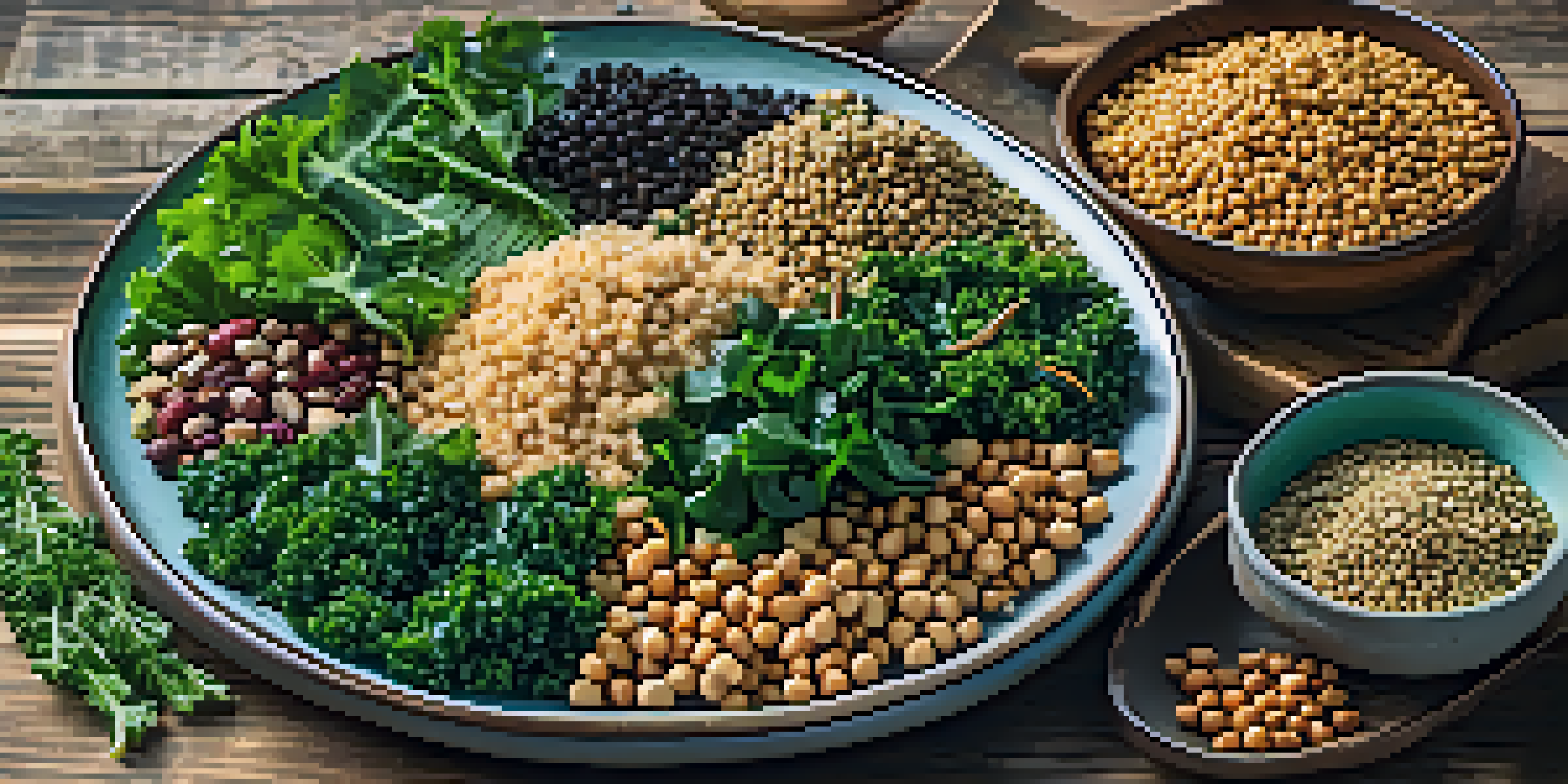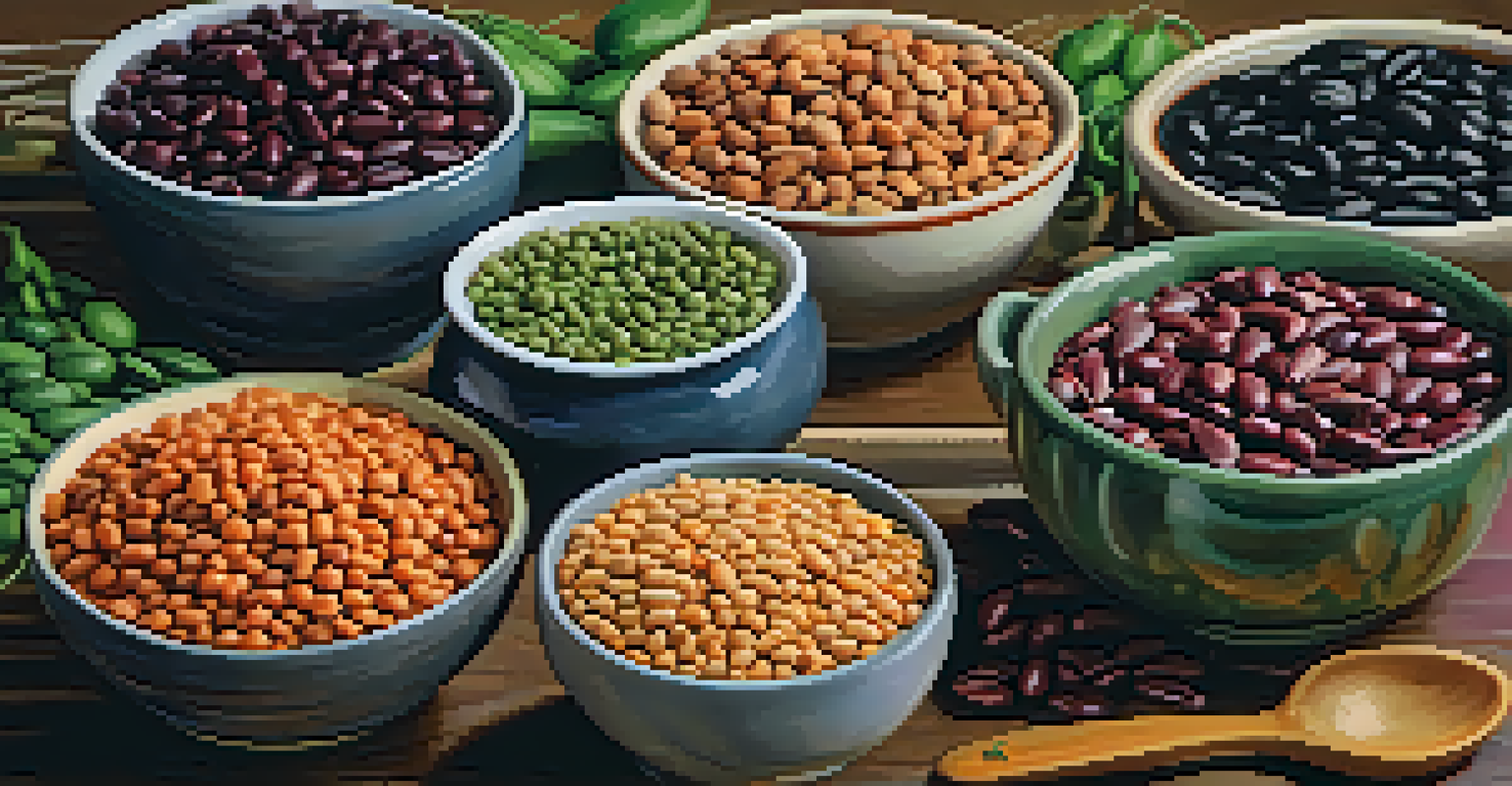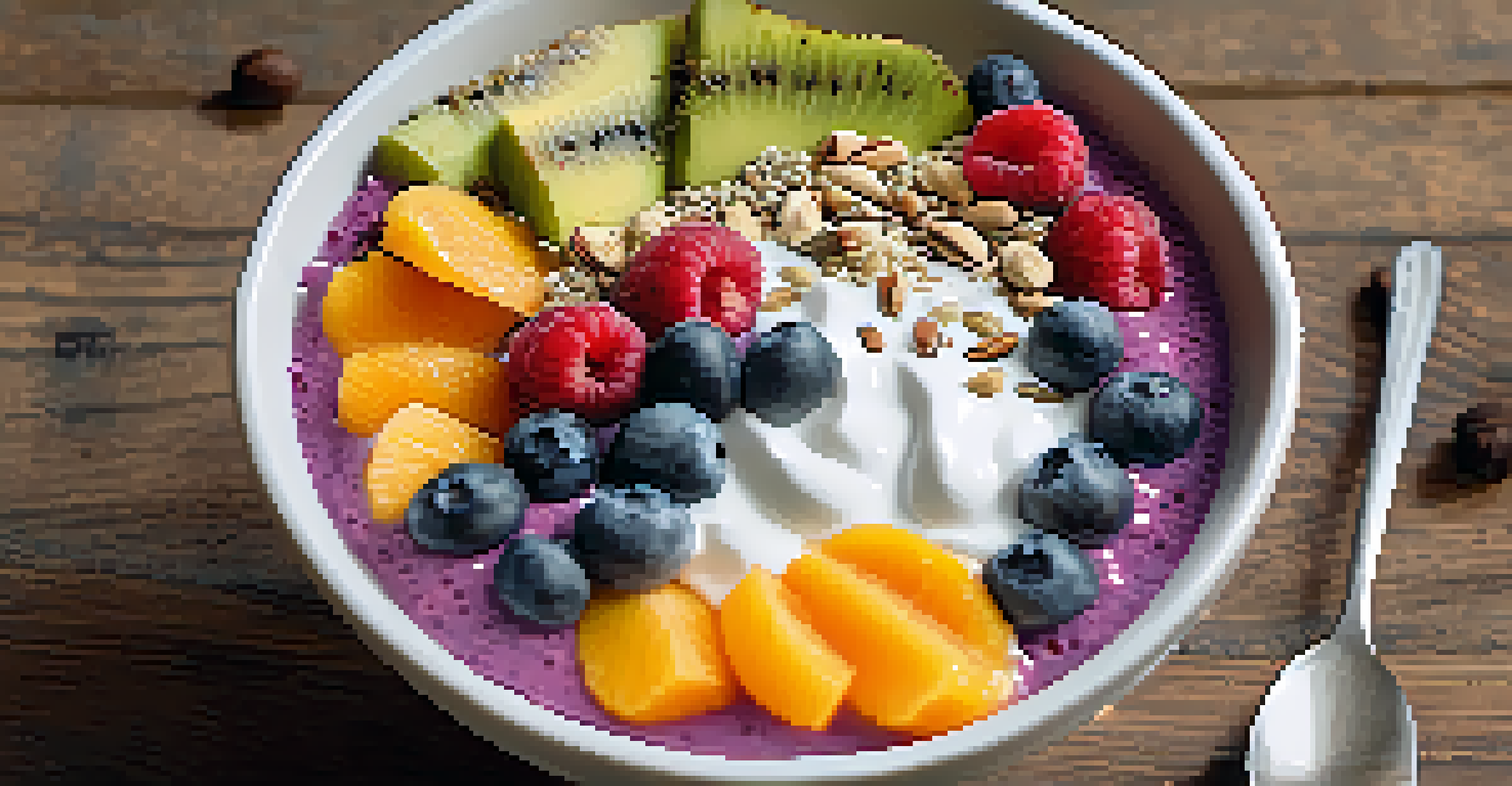Do Vegetarians Get Enough Protein? The Myth Explained

Understanding Protein Needs for a Healthy Diet
Protein is essential for our bodies, playing a vital role in building and repairing tissues. The recommended daily allowance varies based on factors like age, activity level, and overall health. It's important to understand how much protein you need to maintain a balanced diet, whether you eat meat or not.
Let food be thy medicine and medicine be thy food.
For most adults, the recommended dietary allowance (RDA) is about 46 grams for women and 56 grams for men. However, many people consume more than the required amount, often leading to misconceptions about protein deficiency in vegetarians. This is where myths about protein intake start to emerge.
By focusing on a variety of foods, vegetarians can easily meet their protein needs. Foods like legumes, nuts, seeds, and whole grains are packed with protein and can be included in daily meals.
Common Myths Surrounding Vegetarian Protein Sources
One of the most prevalent myths is that vegetarians can't get enough protein without meat. This is simply not true, as many plant-based foods are excellent sources of protein. For example, lentils provide about 18 grams of protein per cooked cup, rivaling that of meat.

Another misconception is that plant proteins are inferior to animal proteins. While it's true that some plant proteins are not 'complete'—meaning they lack one or more essential amino acids—by eating a variety of protein sources, vegetarians can still obtain all the essential amino acids. Think of it as creating a colorful tapestry of nutrients.
Protein is crucial for health
Understanding your protein needs is vital for maintaining a balanced diet, regardless of whether you consume meat.
Additionally, some people believe that vegetarian diets lead to muscle loss due to insufficient protein. However, many athletes thrive on plant-based diets, proving that with the right planning, it's entirely possible to maintain muscle mass and strength without meat.
Plant-Based Protein Sources: A Closer Look
Vegetarians have a wealth of protein-rich options at their fingertips. Beans, chickpeas, and quinoa are just a few examples of nutritious foods that can easily be incorporated into meals. These options not only provide protein but also offer fiber and other essential nutrients.
You are what you eat, so don't be fast, cheap, easy, or fake.
Nuts and seeds, such as almonds and chia seeds, are also great protein sources and can be enjoyed as snacks or added to dishes for an extra crunch. They are rich in healthy fats, making them a perfect complement to a balanced diet.
Dairy products and eggs, for those who include them, are also excellent sources of protein. Greek yogurt, for instance, is packed with protein and can be a delicious addition to smoothies or breakfast bowls.
The Importance of Protein Variety for Vegetarians
For vegetarians, consuming a variety of protein sources is crucial to ensure all essential amino acids are obtained. Combining different plant-based proteins throughout the day can create a complete protein profile. For instance, pairing rice with beans is a classic combo that covers all bases.
Incorporating diverse foods like tofu, tempeh, and edamame can further enhance protein intake. These soy products are not only high in protein but also versatile, making them easy to add to stir-fries, salads, and soups.
Myths about vegetarian protein
Common misconceptions suggest that vegetarians cannot meet their protein requirements, but numerous plant-based sources provide ample nutrition.
Moreover, variety in diet not only helps with protein intake but also keeps meals interesting and flavorful. Experimenting with different cuisines can introduce new protein sources, such as seitan or nutritional yeast, to your plate.
How to Calculate Your Protein Intake
Calculating your protein intake can be straightforward. Start by assessing your daily protein requirements based on your activity level and goals. There are various online calculators that can help determine the right amount for you, taking into consideration your lifestyle.
Once you know your protein needs, keep track of what you eat. Reading nutrition labels can help you understand how much protein different foods provide. This practice can also help identify any gaps in your diet that you may want to address.
Creating a meal plan is another effective way to ensure you meet your protein goals. By including a protein source in every meal and snack, you can easily reach your target without feeling overwhelmed.
Addressing Concerns About Protein Deficiency
Many people worry about protein deficiency on a vegetarian diet, but research shows that true deficiency is rare. Most individuals who follow a well-balanced vegetarian diet get more than enough protein. It's essential to focus on the variety and quality of foods consumed.
If you're concerned about your protein intake, consulting a registered dietitian can provide personalized guidance. They can help tailor a diet plan that ensures you're getting adequate protein and other nutrients.
Variety enhances protein intake
Incorporating a diverse range of protein sources helps vegetarians obtain all essential amino acids and keeps meals interesting.
Additionally, paying attention to how your body feels can be a good indicator of whether you're meeting your protein needs. If you have energy, good muscle tone, and overall health, it's likely that your protein intake is sufficient.
Final Thoughts: Embracing a Balanced Vegetarian Diet
In conclusion, the idea that vegetarians struggle to get enough protein is largely a myth. With a little bit of knowledge and planning, it's completely feasible to meet and even exceed protein needs on a vegetarian diet. Embracing a variety of protein sources can lead to a rich and satisfying culinary experience.
As the world increasingly embraces plant-based diets, understanding the nutritional aspects becomes more critical. Knowledge empowers you to make informed choices that align with your health goals and ethical beliefs.

Ultimately, whether you're a lifelong vegetarian or just exploring the idea, remember that a balanced diet is key. By incorporating a range of protein-rich foods, you can thrive on a vegetarian diet and enjoy the many health benefits it offers.